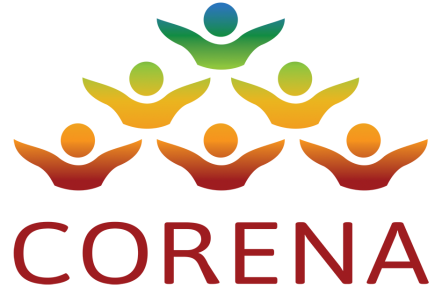Do I need to become a CORENA member in order to take part?
No, anyone can chip in to help fund our climate projects. You may choose to become a member if you wish to have a vote at CORENA meetings and AGMs. The membership fees are a key source of income for covering unavoidable expenses, like insurance, web hosting, and financial audits, so you may choose to become a member simply to help us cover costs. The membership fee is $25 for an individual, $40 for a family (2 adults), and $10 concession or low-income (self-assessed).
Can I invest instead of donating?
The CORENA Fund only accepts donations, but investment in community-owned renewable energy (CORE) projects is also an excellent way of speeding up the transition to renewable energy.
Is CORENA a registered charity with the Australian Charities and Not for Profits Commission (ACNC)?
Yes. You can find our listing on the ACNC website here.
Are donations tax deductible?
Yes. Donations of $2 or more are tax deductible. The Citizens Own Renewable Energy Network Australia Incorporated is endorsed as a Deductible Gift Recipient (DGR) from 01 Jan 2024. It is covered by Item 1 of the table in section 30-15 of
the Income Tax Assessment Act 1997 .
Is all donated money spent on CORENA’s climate projects?
Up until 30/6/22: We allocated 95% of project donations to give interest-free loans to pay for actual project costs, and retain 5% to help CORENA expand our tangible climate project work. 100% of all project loan repayments go back into our revolving fund to help fund future projects.
From 1/7/22: We will revert to our original policy of allocating 100% of project donations to giving interest-free loans to pay for actual project costs. To enable sustainable growth of our tangible climate project work, each year we will allocate a percentage of loan repayments, never more than 20%, towards paying staff to help our volunteers with the growing project management workload. Read about why this decision was made in this article by our founder, Margaret Hender, in Clean Technica Magazine.
How are administration costs covered?
We operate on a shoe-string budget. We don’t have an office, and we rely heavily on voluntary work. Membership fees and occasional fundraising cover unavoidable admin expenses, like insurance, web hosting, and financial audits.
A generous grant enabled us to start hiring part-time staff in 2022 to help our volunteers with the ever-expanding workload associated with our growing revolving fund. But in order to be sure we have a sustainable source of on-going operational funds, from 1/7/22 we will be allocating up to 20% of project loan repayments each year to help cover operational expenses. Initially we will allocate 20%, but we hope to reduce the percentage in future if we have sufficient grants or donations specifically for operational expenses. Read about why this decision was made in this article by our founder, Margaret Hender, in Clean Technica Magazine.
How do I know my contribution will be used effectively?
We base spending decisions on technology and business advice from the CORENA Fund management committee and other relevant experts so that we can be sure we are spending donated funds effectively.
To see details and costs of the work performed, click individual projects on the Projects page. You can also see honour rolls recording each donation we have received and where it was spent.
What are the benefits of contributing to a CORENA climate project?
Our projects are simple and relatively quick, so your contribution results in reductions in carbon emissions relatively quickly. The tangible climate benefit from any one project might be small, but there are potentially large benefits from its follow-on effects amongst the general public. You are also supporting the work of the wonderful non-profits we work with.
What happened to the Quick win projects and Big win fund?
In September 2020 we merged the previously separate Big Win and Quick Win revolving funds into one ‘Quick Win climate project’ revolving fund. Having a single revolving fund simplifies our operations and better reflects how CORENA projects have evolved over time.
Key advantages of the merged revolving fund are:
– prompt and effective use of all project donations (our main motivation)
– a simpler public face for our website and messaging
– inclusion of the achievements from all projects in our Impact Calculator
– removal of outdated distinctions between the types of project funded by separate funds
The primary goal of the original Big Win fund was to enable community funding for utility-scale renewable energy projects that otherwise were unlikely to happen. At the time CORENA began that meant we set our sights on raising enough funds for a solar thermal plant with storage, or perhaps a smaller solar or wind farm.
When that proved to be a step too far we began putting Big Win funds to fund other projects…and the Big Win and Quick Win terms started to become irrelevant so we have removed them from our website.
